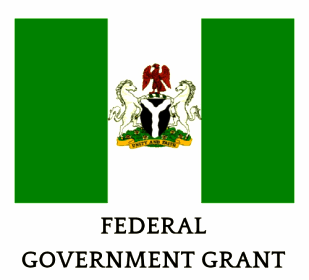
Federal Government Grant
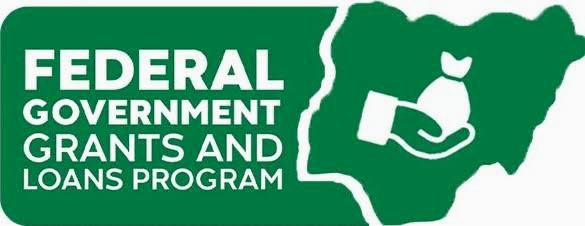
The Federal Government Grant in Nigeria serves as a pivotal tool for fostering economic growth and development across various sectors. Consequently, this initiative aims to empower individuals, businesses, and communities, driving progress and stability.
Background of the Grant
Firstly, it’s essential to comprehend the purpose behind the Nigerian Federal Government Grant. The government introduced this grant to stimulate economic activity, providing financial assistance to eligible recipients. Moreover, these grants cater to diverse sectors, including agriculture, education, health, and technology.
Eligibility Criteria
To qualify for the grant, applicants must meet specific criteria. For instance, small and medium enterprises (SMEs) must demonstrate their potential for growth and sustainability. Additionally, applicants need to provide a detailed business plan outlining how they will utilize the grant funds. Thus, the government ensures that recipients allocate grants to projects with the highest potential for positive impact.
Application Process
The application process for the Nigerian Federal Government Grant involves several steps. Initially, applicants complete an online application form. Subsequently, they submit all required documentation, including financial statements and project proposals. Evaluators then thoroughly review the applications, assessing the viability and potential impact of each project.
Benefits of the Grant
The benefits of receiving a Nigerian Federal Government Grant are manifold. For one, grant recipients gain access to much-needed capital, enabling them to expand their operations and reach new markets. Furthermore, the grants often come with additional support, such as training and mentorship programs. Consequently, recipients are better equipped to navigate challenges and achieve long-term success.
Challenges and Solutions
Despite the numerous benefits, challenges exist with the Nigerian Federal Government Grant. For instance, the application process is highly competitive, with many applicants competing for limited funds. To tackle this, the government has implemented measures to streamline the application process and enhance transparency. Moreover, ongoing efforts aim to raise awareness about the grant program, encouraging more eligible individuals and businesses to apply.
Success Stories
Several success stories have emerged from the Nigerian Federal Government Grant. Notably, many small businesses have transformed into major players in their respective industries. For example, a tech startup that received a grant developed innovative software solutions, ultimately attracting international investors. Similarly, agricultural projects funded by the grant have led to increased food production and improved livelihoods for farmers.
Future Prospects
Looking ahead, the Nigerian Federal Government Grant program will continue evolving. In particular, plans are underway to expand the scope of the grants to include more sectors and increase available funding. As a result, even more individuals and businesses will benefit from this initiative. Additionally, continuous improvements to the application process and support mechanisms will enhance the program’s overall effectiveness.
Conclusion
In conclusion, the Nigerian Federal Government Grant serves as a critical instrument for promoting economic development and empowerment. By providing financial support and additional resources, the government helps create a more prosperous and inclusive society. Therefore, individuals and businesses should explore the opportunities presented by this grant, contributing to the nation’s growth and success.
Grants in Nigeria

Several organizations in Nigeria offer free grants to individuals, entrepreneurs, and organizations. Here are some notable options:
1. Tony Elumelu Foundation Entrepreneurship Programme (TEEP):
- Provides $5,000 in seed capital to African entrepreneurs annually.
- Targets businesses aged 0 to 3 years.
- The application window typically opens from January to March.
- More Information [❞].
2. Bank of Industry (BOI) Youth Entrepreneurship Support (YES) Program:
- Supports young Nigerian entrepreneurs aged 18 to 35 with funding, training, and market access.
- Requires a viable business idea.
- More Information [❞] [❞].
3. YouWIN! Connect:
- Government initiative offers funding, training, and mentorship to young entrepreneurs across various industries, including technology, fashion, and agriculture. This support aims to foster innovation and sustainable growth in the entrepreneurial ecosystem.
- More Information [❞].
4. Pollination Project
- Offers seed grants to individuals and organizations for community-driven projects focusing on education, environment, health, and social justice.
- More Information [❞].
5. GroFin Grants:
- Provides finance and support to small and growing businesses in sectors like healthcare, education, agribusiness, and manufacturing.
- Grants range from $100,000 to $1.5 million.
- More Information [❞].
6. African Women’s Development Fund (AWDF):
- The initiative supports women-led organizations dedicated to women’s rights and empowerment across Africa. Specifically, it aims to enhance gender equality and promote socioeconomic advancement for women in diverse sectors.
- More Information [❞] [❞].
7. Health Innovation Marketplace Grants:
- The fund supports innovative healthcare solutions in Nigeria, including capacity building, technology development, and medical research. Consequently, these initiatives aim to enhance the overall healthcare system in the country.
- More Information [❞].
8. Ford Foundation Grants:
- The program supports projects aimed at alleviating poverty, promoting democratic values, and advancing human knowledge. Furthermore, these initiatives strive to create a more equitable and informed society.
- More Information [❞].
9. SMEDAN Grants:
- Encouraging the growth of Nigeria’s MSME sector, the initiative provides various forms of support, including financial aid. This assistance aims to bolster entrepreneurship and economic development at the grassroots level.
- More Information [❞].
10. Central Bank of Nigeria (CBN) AGSMEIS Loan Scheme:
- Supports agricultural businesses and SMEs for long-term economic development.
- Requires completion of a mandatory course at a NIRSAL MFB-certified Entrepreneurship Development Institute.
- More Information [❞].
Each grant specifies eligibility criteria and application processes. To apply, visit the respective websites and follow the provided guidelines.
List of Government Grants for Individuals in Nigeria
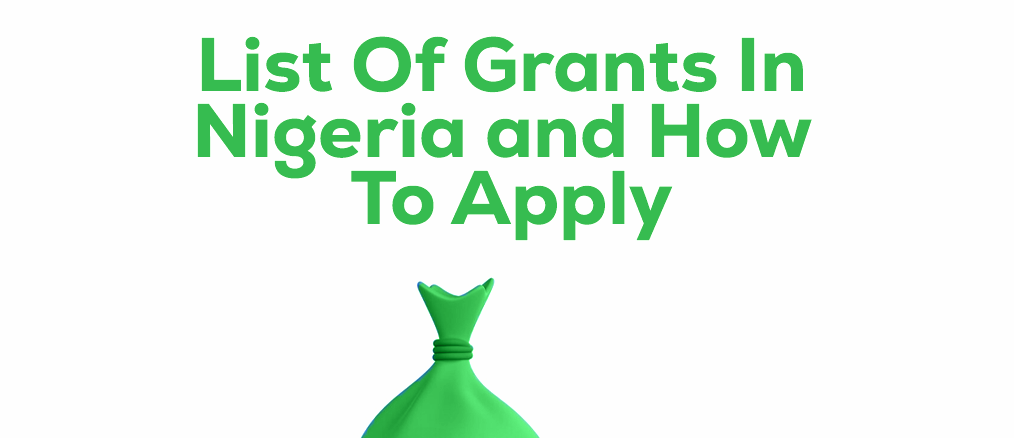
The Nigerian government offers various grants and financial assistance programs to support individuals and businesses. Specifically, here are some notable ones:
- N-Power: This program reduces youth unemployment by providing young Nigerians with work skills and stipends.
- TraderMoni: Part of the Government Enterprise and Empowerment Program (GEEP), it offers interest-free loans to petty traders and artisans.
- MarketMoni: Another initiative under GEEP, providing loans to market women, traders, and artisans.
- FarmerMoni: Also under GEEP, it provides loans to farmers to enhance agricultural productivity.
- Youth Entrepreneurship Support (YES) Program: Managed by the Bank of Industry, this program trains and funds young entrepreneurs to start their businesses.
- YouWiN! Connect: This program encourages entrepreneurship among Nigerian youth by providing training and grants.
- Tony Elumelu Foundation Entrepreneurship Program: While not a government program, it partners with the government to support African entrepreneurs with training, mentoring, and funding.
- National Social Investment Program (NSIP): Includes various components like N-Power, Conditional Cash Transfer, and the Government Enterprise and Empowerment Programme.
- BOI (Bank of Industry) Funds: The Bank of Industry offers various funding options and grants for businesses and entrepreneurs.
- Development Bank of Nigeria (DBN) Loans: Provides financing and partial credit guarantees to Micro, Small, and Medium Enterprises (MSMEs) through participating financial institutions.
These programs promote economic growth, reduce poverty, and support various sectors like agriculture, trade, and technology. Therefore, it is important to check the eligibility criteria and application process for each program, as they vary.
Federal Government Grant: Grant Scheme Application in Nigeria
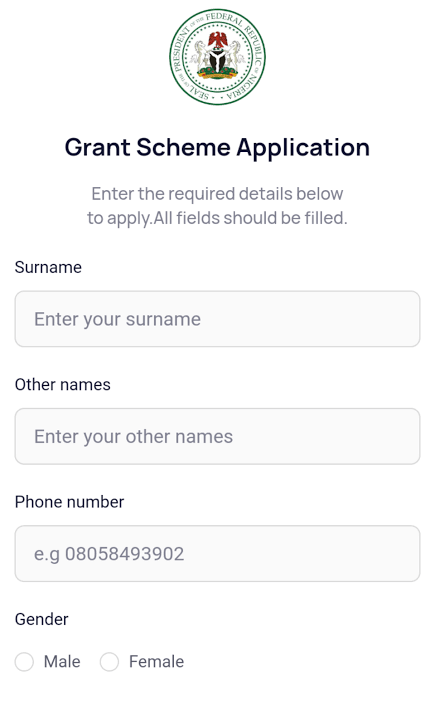
Applying for grant schemes in Nigeria can be a pivotal step for organizations and individuals looking to fund impactful projects, drive community development, or foster innovation. Navigating the application process requires careful planning, adhering to specific guidelines, and understanding what funders are looking for. This article provides a comprehensive guide, highlighting key steps and considerations to enhance your chances of securing grant funding.
Researching Grant Opportunities
The initial step in applying for grants is identifying suitable opportunities. In Nigeria, grants are offered by government agencies, international donors, corporate foundations, and non-profits, each outlining specific focus areas, eligibility criteria, priorities, and deadlines. Thorough research is essential to align grants with your project goals and organizational mission effectively.
Understanding Eligibility Criteria
Once potential grant opportunities are identified, reviewing eligibility criteria is crucial. These factors may include project type (e.g., education, health), geographic focus (local, regional, national), organizational status (non-profit, for-profit, NGO), and demographic targets (youth, women, marginalized communities). Aligning your project with these criteria enhances your chances of a successful application.
Crafting a Compelling Proposal
Crafting a compelling grant proposal is crucial. Moreover, it outlines the project’s objectives, activities, and expected outcomes while aligning with the grant provider’s mission. Key components include:
- Introduction: Clearly articulate the problem or need your project aims to address.
- Objectives: Define specific, measurable objectives that your project intends to achieve.
- Methodology: Describe the activities and methods you will employ to accomplish the objectives.
- Budget: Provide a detailed budget that aligns with the proposed activities and timelines.
- Impact: Outline the anticipated impact of the project on beneficiaries, communities, or the broader society.
Gathering Supporting Documents
In addition to the proposal itself, grant applications often require supplementary documents to support your organization’s credibility and the feasibility of your project. These may include:
- Organizational Registration: Copies of your organization’s registration certificate and governance documents.
- Financial Statements: Recent financial statements or audited accounts to demonstrate financial stability and accountability.
- Project Budget: A detailed budget breakdown showing how grant funds will be utilized.
- CVs/Resumes: Resumes of key personnel involved in the project, highlighting relevant experience and qualifications.
- Letters of Support: Endorsements or letters of support from partners, stakeholders, or community leaders.
Ensuring all required documents are complete, accurate, and well-organized is crucial for a successful application.
Submission and Follow-Up
Once your application is prepared, submit it according to the grant provider’s instructions and deadlines. Some grants may require online submissions through designated portals, while others may accept physical applications. After submission, remain proactive by following up on the status of your application. Grant schemes often have review periods during which they may contact you for additional information or interviews.
Learning from Feedback
Whether your application is successful or not, seeking feedback from the grant provider can provide valuable insights for future applications. Additionally, understanding the strengths and weaknesses of your proposal helps in refining future grant applications, thereby improving your chances of securing funding.
Conclusion
Applying for grant schemes in Nigeria demands diligence, strategic planning, and a clear understanding of both the funder’s priorities and your project’s potential impact. By conducting thorough research, crafting a compelling proposal, and strictly adhering to application guidelines, you can significantly enhance your chances of securing the funding needed to bring positive change to your community or organization. Embrace the process with enthusiasm and determination; let your passion for your project shine through in every aspect of your application.
Federal Government Grant: The Presidential Conditional Grant Scheme in Nigeria
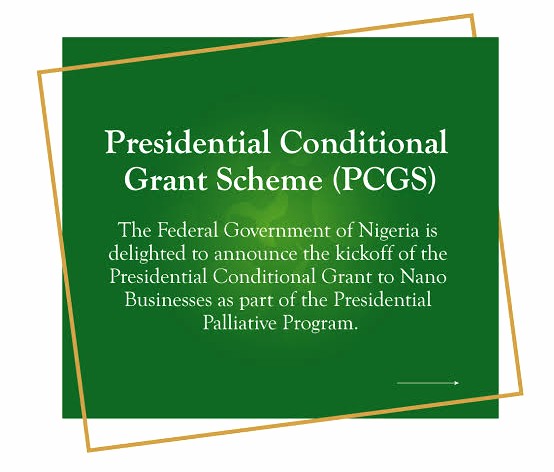
In Nigeria, the Presidential Conditional Grant Scheme (PCGS) serves as a pivotal initiative aimed at bolstering the development efforts of various states across the nation. Implemented under the framework of the Fiscal Sustainability Plan (FSP), this scheme represents a proactive approach by the federal government to promote fiscal prudence, transparency, and accountability among state governments. Moreover, it underscores the government’s commitment to ensuring equitable development and efficient resource allocation nationwide.
The PCGS aims to provide targeted financial support to states for executing critical projects and programs that directly benefit their citizens. By allocating funds through this scheme, the federal government seeks to address infrastructure deficits, enhance social services, and consequently, foster overall economic development at the grassroots level.
Details of the Scheme
Under the PCGS, funds disbursed based on specific conditions that recipient states must meet. These conditions include implementing robust fiscal responsibility measures, adhering to transparent public financial management practices, and reporting financial activities promptly. Such stringent criteria ensure that allocated funds are used efficiently and effectively to achieve measurable developmental outcomes.
Projects and Impact
Funds from the PCGS support diverse projects like road construction, healthcare facilities, and educational infrastructure, chosen to address socio-economic needs in states, enhancing residents’ quality of life and fostering inclusive growth.
Implementation Process
The implementation process of the PCGS involves a collaborative effort between the federal government and state authorities. Upon approving funding, they establish detailed project plans and timelines with clear performance indicators and milestones to track progress. Consequently, this structured approach ensures accountability and facilitates the timely completion of projects within budgetary constraints.
Achievements and Challenges
Since its inception, the PCGS has achieved notable progress in various states across Nigeria. Infrastructure gaps have narrowed, access to essential services has expanded, and local economies stimulated through job creation and increased economic activity. However, challenges such as bureaucratic delays, inadequate state-level capacity, and occasional fund mismanagement significant hurdles to the scheme’s seamless operation.
Future Outlook
Looking ahead, the PCGS is poised to play an even more pivotal role in Nigeria’s development trajectory. Furthermore, ongoing refinements in governance structures, capacity-building initiatives, and strengthened monitoring mechanisms are expected to yield greater developmental impacts and ensure sustainable progress across all states.
Conclusion
In conclusion, the Presidential Conditional Grant Scheme in Nigeria represents a proactive and strategic approach by the federal government to drive socio-economic development at the grassroots level. By providing targeted financial support, enforcing strict accountability measures, and promoting transparency, the scheme not only addresses critical infrastructure and service delivery gaps but also empowers states to achieve sustainable development outcomes. As Nigeria continues on its path towards economic prosperity, initiatives like the PCGS will undoubtedly remain instrumental in shaping a more inclusive and resilient nation.
Related Topics
Business: All To Know Before Starting A Business
Minimum Wage in Nigeria: NLC News Update


